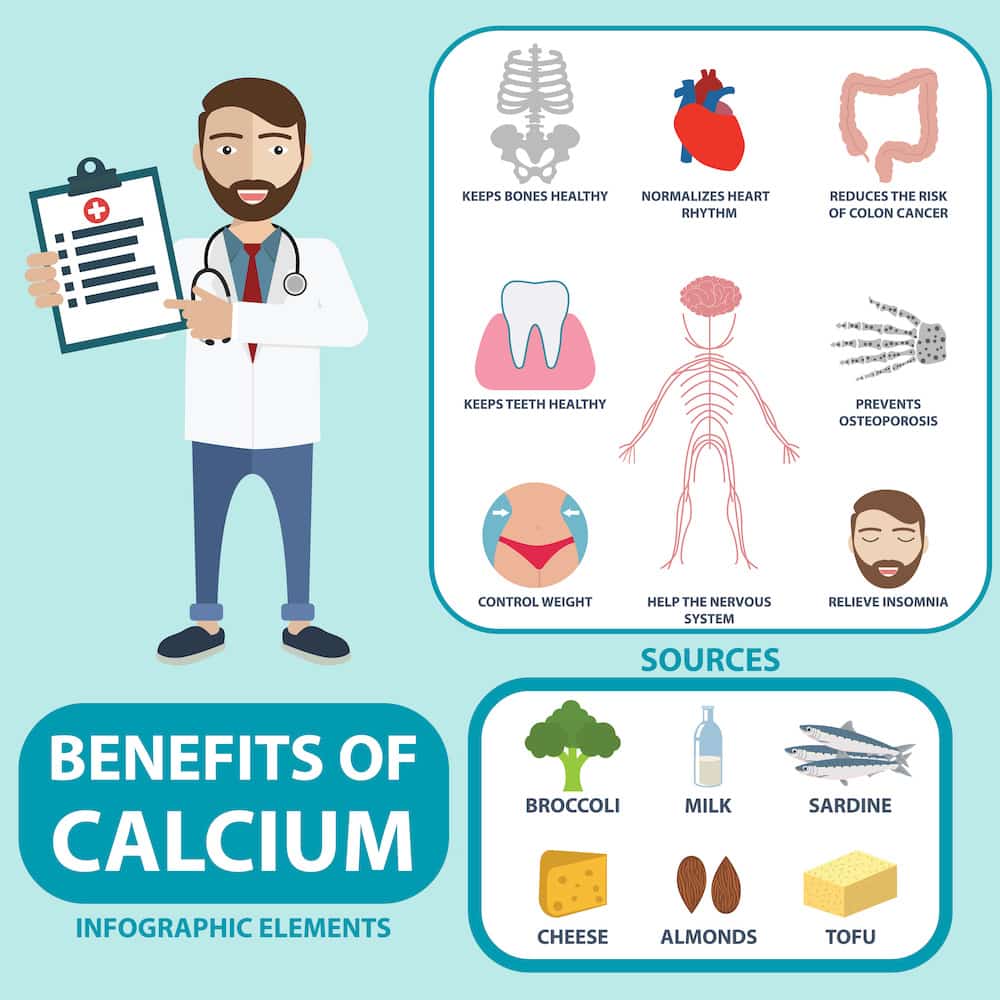Calcium is a chemical element that is essential for life. It’s found in the human body and in many foods, and it plays an important role in many bodily processes.
Calcium is a silvery-white metal that is the fifth most abundant element in the Earth’s crust. It is also the fifth most abundant element in the human body, making up about 1.5 percent of an adult’s body weight. Calcium is essential for the formation and maintenance of bones and teeth, as well as for healthy muscles, nerves, and blood vessels. It also helps regulate hormones, maintain fluid balance in the body, and support normal metabolism.
Calcium is found in many foods, including dairy products, green leafy vegetables, legumes, nuts, and grains. It is also available in supplement form, such as calcium carbonate or calcium citrate. The recommended daily intake of calcium varies by age, ranging from 700 to 1,300 milligrams per day.
To ensure adequate calcium intake, it is important to consume a balanced diet that includes a variety of calcium-rich foods. It is also important to exercise regularly and maintain a healthy weight, as these activities can help support calcium absorption and utilization. If dietary sources are not sufficient, calcium supplements can be used to meet the recommended daily intake.
Benefits of Calcium

Calcium is an essential mineral that is necessary for the body to function properly. It is found in dairy products, leafy greens, and other foods. Calcium is essential for strong bones and teeth, and it is also important for muscle contraction, nerve transmission, and blood clotting.
The benefits of calcium are vast. Calcium plays an important role in maintaining healthy bones and teeth. It helps the body to absorb and use other minerals including magnesium, zinc, and phosphorus. A diet rich in calcium can help to reduce the risk of osteoporosis and fractures.
Calcium is also important for optimal blood pressure and cardiovascular health. Studies have shown that it can help to reduce the risk of stroke and heart attack. It can also help to reduce the risk of colon cancer and other types of cancer.
Calcium is also essential for proper muscle function. It helps to regulate muscle contraction and relaxation, and it is important for muscle development. Calcium also helps to regulate nerve transmission, which helps to ensure that the body’s nerves function properly.
In addition to all of these benefits, calcium can also help to regulate blood clotting. This is important for preventing excessive bleeding and clotting disorders. It can also help to reduce the risk of clotting disorders such as deep vein thrombosis.
Getting enough calcium from the diet is essential for overall health. Adults should aim for 1,000-1,200mg of calcium per day. Good food sources of calcium include dairy products, dark leafy greens, almonds, sardines, and tofu. Supplements can be taken as well, but it is important to talk to your doctor before taking any supplement.
List of Top 21 Foods Highest in Calcium:
